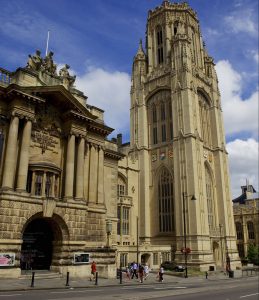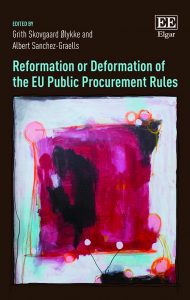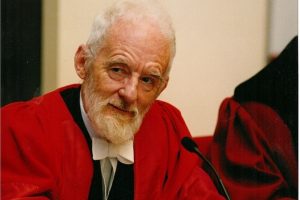By Prof Antonia Layard, Professor of Law (University of Bristol Law School) *
Legal geography is an exciting and emerging cross-discipline, exploring how people and places co-constitute the world. It proceeds from the premise that the legal co-creates the spatial and the social while the social and the spatial co-create the legal. There is reflexivity. Once we accept this premise, however, the hard work begins. How do we work out what ‘work’ legal provisions and practices are doing to create spaces (national, regional, local or private) and how do spatial and social settings inform the application of legal rules and principles?
In a piece that was commissioned by Geography Compass, both to provide an overview of where legal geography is today as well as to consider where it is heading, Luke Bennett and I developed the idea of becoming a ‘spatial detective’. We suggested that there is much to learn by both legal scholars and geographers becoming ‘spatial detectives’ – of learning, Sherlock Holmes-like, to search out the presence and absence of spatialities in legal practice, and of law’s traces and effects embedded within places. To make this argument, we revisited the debates around the case of R –v Dudley & Stephens ((1884) 14 QBD 273, still a classic in Law Schools).
 On 6th September 1884, three sailors arrived in Falmouth and reported to the local Customs House, resenting sworn statements there about their recent activities. One month later, these candid statements became evidence in their trial for murder held at the Devon & Cornwall Winter Assizes, in Exeter. This case, R –v Dudley & Stephens, proved to be one of the most contentious legal decisions in English legal history. For the courts ruled that the killing and eating of a cabin boy by these sailors, was a crime under English Law. This was so, even though the sailors would have died had they not done so, as they drifted helplessly aboard a lifeboat in the South Atlantic, 1600 miles off the Cape of Good Hope. (more…)
On 6th September 1884, three sailors arrived in Falmouth and reported to the local Customs House, resenting sworn statements there about their recent activities. One month later, these candid statements became evidence in their trial for murder held at the Devon & Cornwall Winter Assizes, in Exeter. This case, R –v Dudley & Stephens, proved to be one of the most contentious legal decisions in English legal history. For the courts ruled that the killing and eating of a cabin boy by these sailors, was a crime under English Law. This was so, even though the sailors would have died had they not done so, as they drifted helplessly aboard a lifeboat in the South Atlantic, 1600 miles off the Cape of Good Hope. (more…)
 The University of Bristol Law School hosted a roundtable on Practical Approaches towards Comparative Law and Interdisciplinarity on 8 February 2017. It was organised by Dr Giorgia Guerra (University of Padua, Italy) and Dr Jule Mulder (University of Bristol, UK). The roundtable brought together a number of comparative law researchers and provided a small and informal forum to consider interdisciplinary approaches within the context of European comparative private law and constitutional law. It explored how research on modern technologies, social sciences and arts and humanities can enrich comparative law projects within the context of (European) private and constitutional law. The presentations were chaired by Dr Athanasios Psygkas and Prof Paula Giliker. (more…)
The University of Bristol Law School hosted a roundtable on Practical Approaches towards Comparative Law and Interdisciplinarity on 8 February 2017. It was organised by Dr Giorgia Guerra (University of Padua, Italy) and Dr Jule Mulder (University of Bristol, UK). The roundtable brought together a number of comparative law researchers and provided a small and informal forum to consider interdisciplinary approaches within the context of European comparative private law and constitutional law. It explored how research on modern technologies, social sciences and arts and humanities can enrich comparative law projects within the context of (European) private and constitutional law. The presentations were chaired by Dr Athanasios Psygkas and Prof Paula Giliker. (more…)


